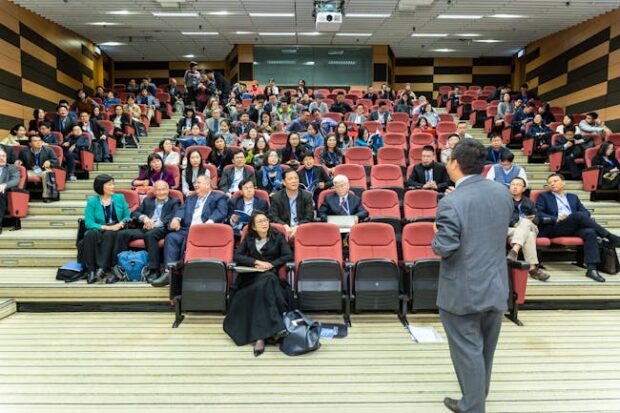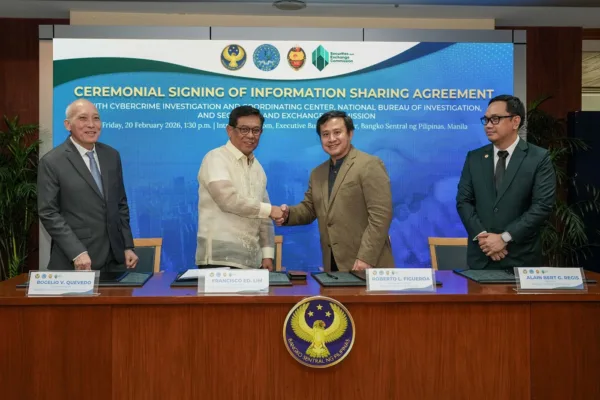by Jan Michael Carpo, Reporter
Cybercrime, a shadowy menace that transcends borders and threatens the digital infrastructure of nations, has now ignited a unified response as Asian and South Pacific leaders convene in Manila to launch an unprecedented collaboration in the fight against this growing global threat.

In a landmark effort to address rising cybercrime threats, representatives from Asian and South Pacific countries convened in Manila for the inaugural meeting of the Asia and South Pacific Joint Operations on Cybercrime (ASPJOC) working group.
Held from September 17 to 19, 2024, the event gathered officials and experts from across the region to foster international cooperation and share best practices in combatting cybercrime.
The gathering was organized by the Cybercrime Investigation and Coordinating Center (CICC) of the Philippines, in collaboration with the Philippine Center for Transnational Crime (PCTC).
The event also had the backing of INTERPOL Asia, marking a significant step in strengthening regional cybercrime enforcement. Countries represented at the meeting included Brunei, Cambodia, Fiji, Indonesia, Kiribati, Laos, Malaysia, the Marshall Islands, Nauru, Papua New Guinea, Samoa, Singapore, the Solomon Islands, Thailand, Timor-Leste, Tonga, Vanuatu, Vietnam and the Philippines.
Combatting cybercrime: A unified approach
Lucas Bersamin, the Philippines’ Executive Secretary, addressed the working group at a special fellowship night, emphasizing the importance of joint efforts in the fight against e-crimes. He highlighted how collaboration among these nations would support the development of stronger mechanisms for sharing cybercrime intelligence and implementing best practices.

Representatives from INTERPOL Asia & South Pacific Joint Operations on Cybercrime (ASPJOC) in Manila
“We can confront the cross-formulations of cybercrime through these working group meetings,” Bersamin said. “Together, we can build robust systems for intelligence sharing, law enforcement coordination, and operational cooperation, ensuring that cybercrime does not go unchallenged in our respective nations.”
Bersamin also noted that cybercrime is not just a technological issue but a significant threat to the way of life, institutions, and citizens across the region. “As we assemble here this evening, let us keep in mind that combating cybercrime is more than just a technological struggle. The struggle is to defend our way of life, our institutions, and our citizens. It’s a fight that requires unwavering commitment, collaboration, and teamwork,” he declared.
Enhancing law enforcement capabilities

The meeting in Manila sought to address the rising tide of e-crimes such as financial fraud, ransomware attacks, and other forms of cyberattacks that have increasingly targeted nations in the Asia-Pacific. The ASPJOC meeting serves as a foundation for building coordinated responses and enabling joint operations to tackle cross-border cyber threats.
CICC Executive Director Alexander K. Ramos expressed his gratitude to INTERPOL and the participating ASPJOC countries for selecting the Philippines as the host country for this important event. He recognized the critical role that regional collaboration plays in addressing a fast-evolving threat landscape.
“We are honored to host this inaugural gathering and look forward to continuing this partnership to fight against cybercrime. It is only through joint efforts that we can make significant progress in this field,” Ramos stated.
Interpol’s role in cybercrime operations
Enrique Hernandez Gonzalez, INTERPOL’s Assistant Director of Cybercrime Operations, further underscored the importance of continued engagement among member nations after the event. He explained that the working group is not just a one-time meeting but a foundation for ongoing collaboration.
“It is crucial for us to maintain communication and to follow up after we return home,” Gonzalez noted. “By staying connected and ensuring that the systems we discuss here are implemented back in our countries, we can create lasting impacts against cybercrime.”
He also stressed that the working group’s goal is to develop actionable plans for cybercrime mitigation that each participating nation can adopt, tailoring strategies to fit their unique challenges while maintaining a unified front.
Cybercrime: A growing threat
The meeting comes at a critical time when cyberattacks in Asia and the South Pacific are on the rise. Cybercriminals are increasingly targeting financial institutions, governments, and businesses, exploiting vulnerabilities in digital infrastructures. The ASPJOC working group aims to establish a coordinated response to these cyber threats, ensuring that countries in the region are better prepared to handle complex cybercrime.
According to Abbas Kudrati, Microsoft’s chief cybersecurity advisor for Asia-Pacific, “Cybercrime has already become a new business form,” adding that cyberattacks are fast becoming an organized crime in the Philippines with at least 21 local firms falling victim to a new modus — ‘double extortion’, whereby stolen data remains in the dark web even after companies have paid the ransom.
Citing data from the 2022 Global Threat Report, Kudrati says six companies have already fallen prey to criminals in 2021 and another 15 have also been victimized this year. These companies are from various sectors including finance, automobiles, retail and real estate.
The collaboration between INTERPOL and the ASPJOC countries is expected to lead to stronger cross-border partnerships, streamlined information-sharing processes, and more efficient law enforcement operations. As the world becomes more interconnected, addressing cyber threats requires a collective effort that transcends national borders.
With the ASPJOC working group continuing to grow and meet regularly, the commitment to sharing intelligence and adopting best practices will prove essential in the global fight against cybercrime. With the launch of this inaugural meeting in Manila, the stage is set for long-term cooperation that will help safeguard the digital futures of nations across Asia and the South Pacific.
The successful conclusion of this historic event signifies the beginning of a new chapter in the region’s approach to cybercrime, with the hope that these efforts will lead to more resilient digital landscapes for all.







